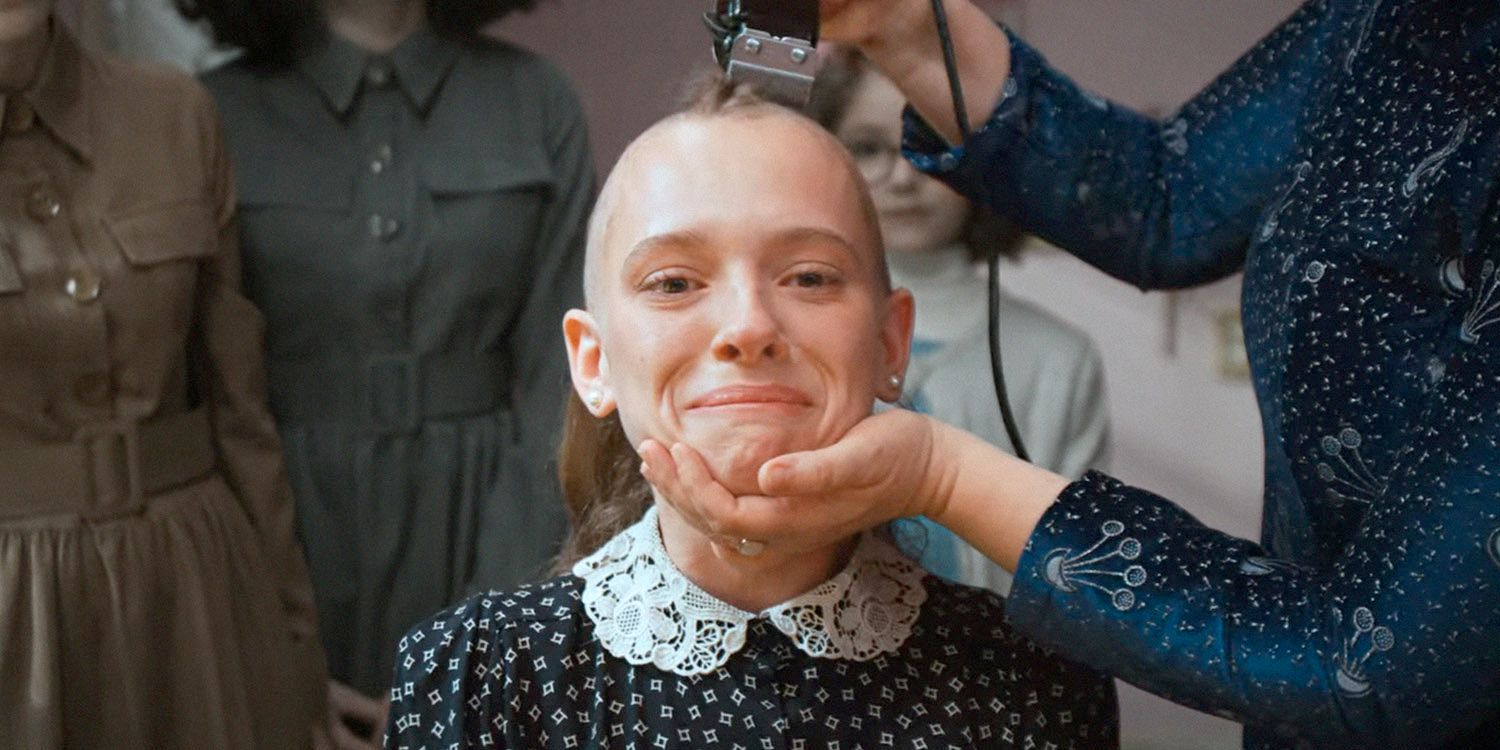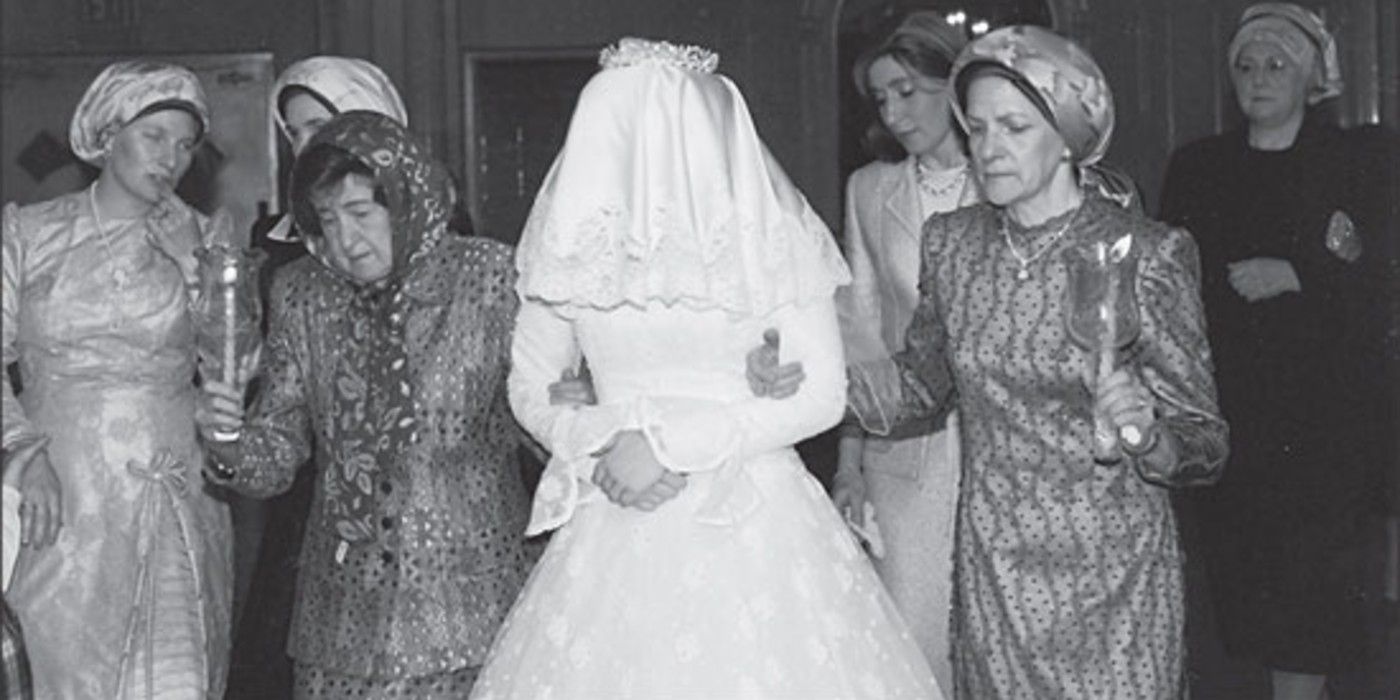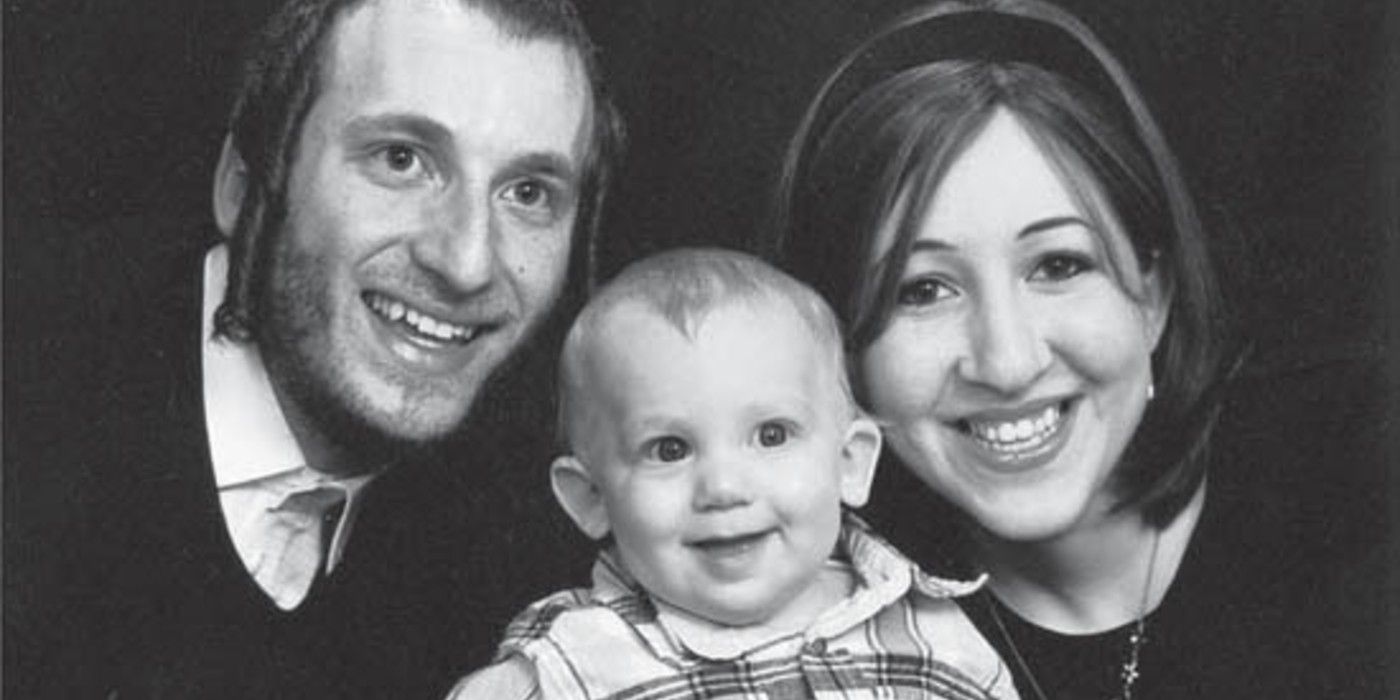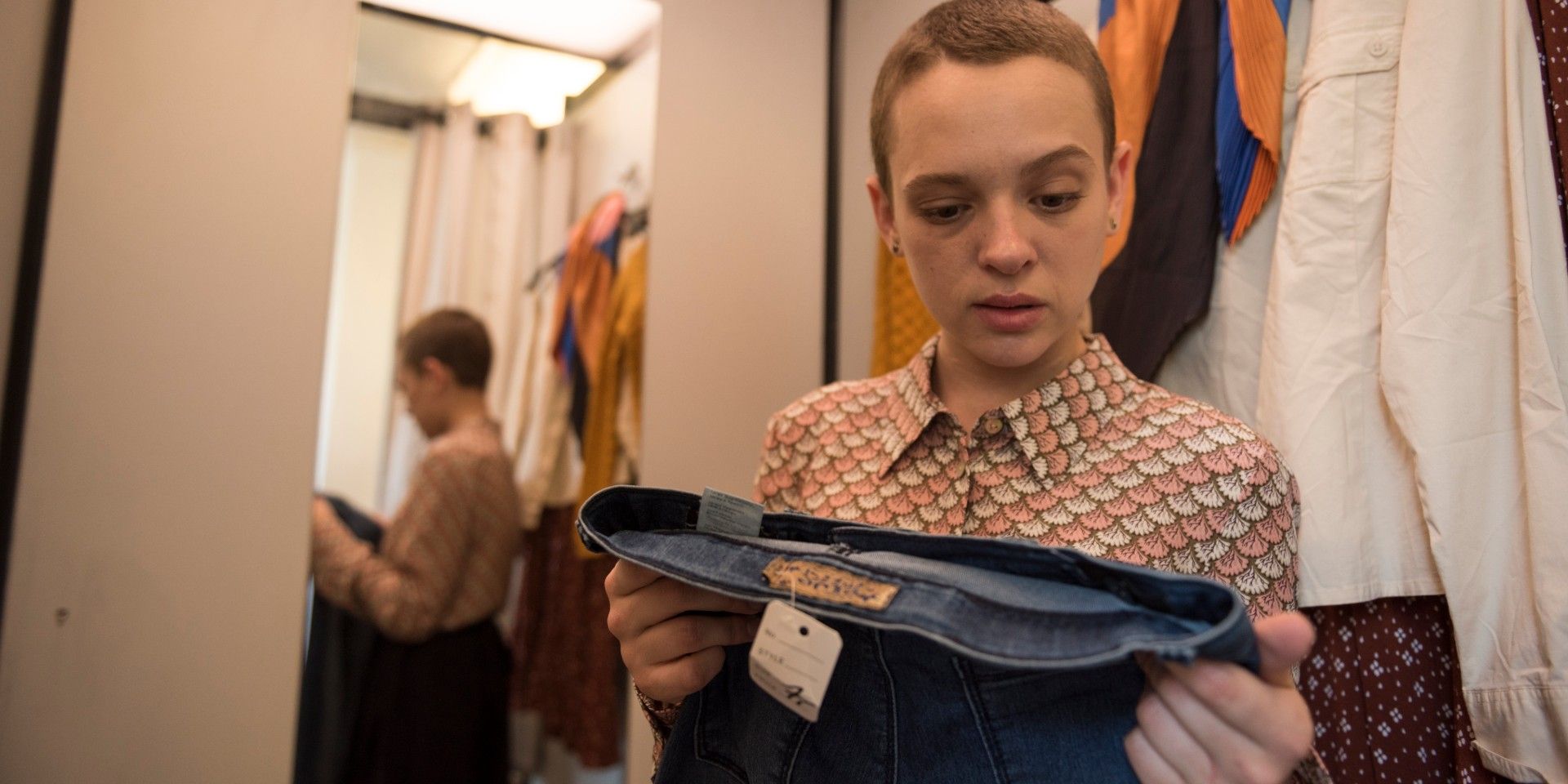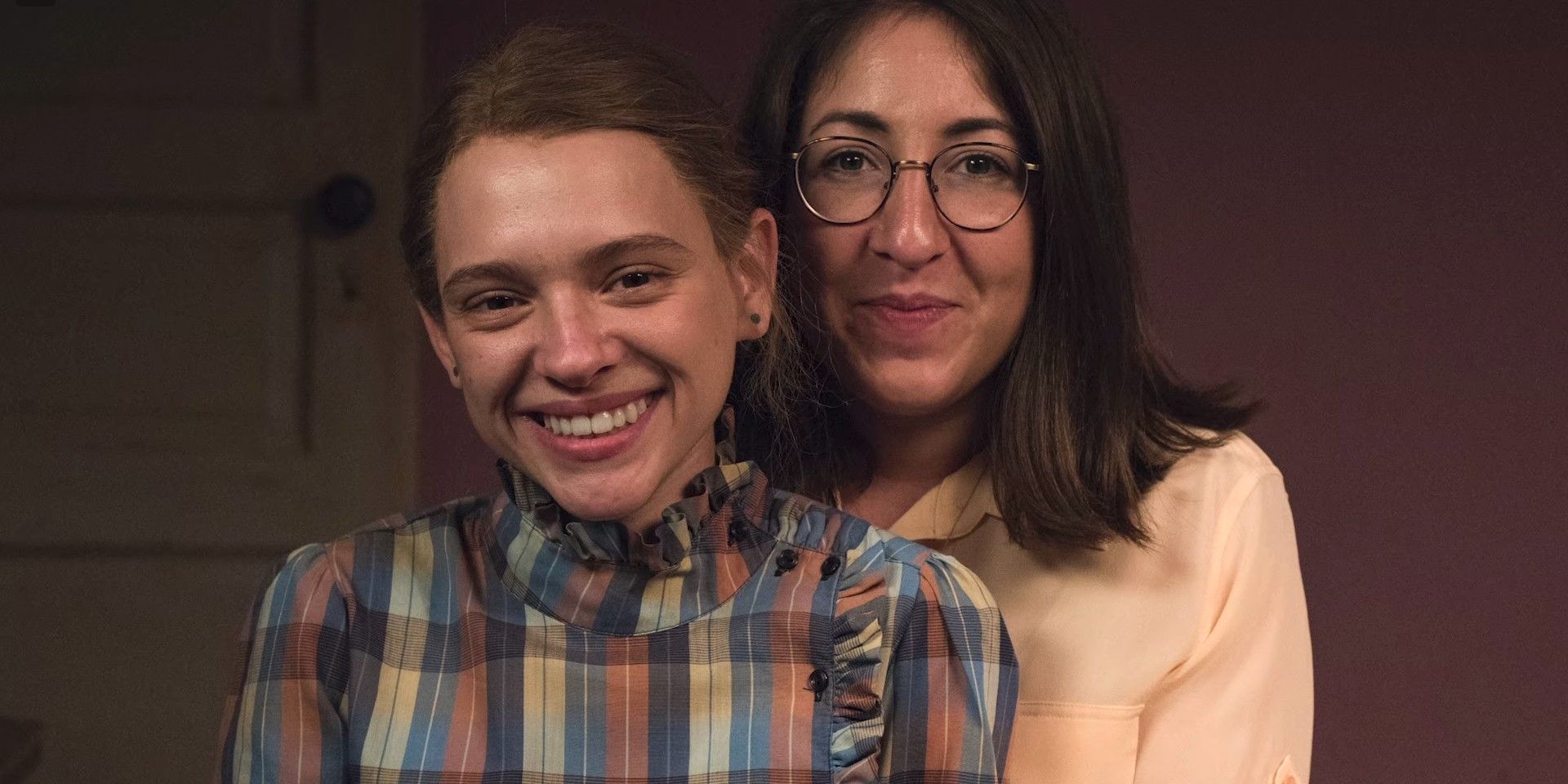Netflix's limited drama series Unorthodox is loosely based on the true story of Deborah Feldman, a writer who grew up as part of the Hasidic Satmar community in Williamsburg, Brooklyn, but later left her husband and cut ties with the community. Feldman's autobiography, Unorthodox: The Scandalous Rejection of My Hasidic Roots, was published in 2012 and was the inspiration for Unorthodox, but the four-episode series takes many creative liberties with the real life details.
Unorthodox stars Shira Haas as Esther Shapiro, a young woman from the Satmar community who, like Feldman did, enters into an arranged marriage as a teenager. One year later, pregnant and desperate to escape the pressures of her culture and an unhappy marriage to her husband, Yakov (Amit Rahav), Esty flees to Berlin. Because her grandparents were born there she has a right to German citizenship, and Esty's own mother, Leah (Alex Reid), similarly cut ties with the Satmar community and now lives in Berlin as well.
The present-day portions of Unorthodox - including Yakov and his cousin Moishe (Jeff Wilbush) following Esty to Berlin and trying to track her down - are fictional. However, the flashbacks to Esty's life as part of the Satmar community, her arranged marriage to Yanky, and her experiences as a Satmar wife are closely based on Feldman's book. Here's how Unorthodox compares to the true story.
Esty's Childhood and Engagement to Yanky
Unorthodox: The Scandalous Rejection of My Hasidic Roots spends a lot more time on Feldman's childhood as she grows up in Williamsburg, whereas Netflix's Unorthodox primarily focuses on her engagement and marriage to Yakov. Unorthodox is the first Yiddish-language Netflix show, and in her memoir Feldman recalls being scolded for speaking English with her friends. When she later left with her son, one of the first things she did was teach him to speak English.
As depicted in Unorthodox, Feldman's mother left the Satmar community because she was gay. Feldman's mother was warned that she would not be allowed to take her daughter with her when she left, as rabbinical courts rarely grant custody to parents who decide to leave the community. As depicted in Unorthodox, Feldman went to live with her grandparents instead, and was estranged from her mother for many years. Her relationship to her Bubby, or grandmother, was particularly closely adapted for the TV show, including the detail of her Bubby only singing or humming when her Zeidy (grandfather) is not at home, since women singing is considered immodest in the Satmar community.
Esty's first meeting with Yanky in Unorthodox is also closely based on the book, including the fact that she had to wait for him to speak before she was permitted to speak. Much of the dialogue in the show is lifted straight from Feldman's memoir, including Yanky's story about visiting the graves of famous rabbis, and Esty hastening to tell him that she's "not a regular girl." Feldman also had to take kallah classes, as depicted in Unorthodox, in order to teach her how to prepare for all aspects of married life - including the technicalities of sex and the requirements of niddah, the time during and after a woman menstruates when conjugal relations are forbidden.
Esty's Married Life and Pregnancy
In Unorthodox, Esty and Yanky's difficulty in consummating their marriage is depicted as a problem specifically with Esty. Though Feldman had similar troubles with her own husband, Eli, some of their difficulty in having sex was a result of Eli's inability to get and maintain an erection. Nonetheless, it was Feldman who ended up going to doctors looking for a way to fix their problem. One diagnosed her with having two hymens, and another said that she had a vaginal septum, and finally she went to a sex therapist who told her that she had vaginismus. Like Esty does in the show, Feldman used dilators and did nightly exercises to try and address the issue, and eventually she and Eli were able to consummate their marriage.
It's here that Unorthodox begins to diverge from the true story. Whereas Esty keeps her pregnancy a secret from Yanky in the show and runs away to Berlin while still pregnant, Feldman stayed with her husband throughout her pregnancy and the two of them raised their son together for the first few years of his life. In fact, Feldman and her husband moved out of Brooklyn together at first, because she didn't want to raise a child in their cramped Williamsburg apartment. They relocated to the town of Airmont in New York, where Feldman gave birth to a son, Yitzy. She was then accepted to a writing program at Sarah Lawrence, and her experiences at college mirror Esty's time with the music students in Unorthodox - including the scandalous moment of buying her first pair of jeans.
Esty's Escape From the Satmar Community
Though Feldman's separation from her husband and the Satmar community wasn't quite as dramatic as it is in the show, and she didn't go to Berlin straight away, many of the details are lifted from real life. Like Esty does in Unorthodox, Feldman pawned off her jewelry and some wedding gifts in order to acquire enough cash to get started. She rented a car and packed many of her belongings into it, along with a three year-old Yitzy, and moved the two of them back to New York City. Feldman changed her phone number and didn't tell anyone her new address, so that she could not be tracked down as she was starting her new life.
Like Etsy, Feldman did indeed end up moving to Berlin in 2014, describing New York City as "a backyard full of skeletons, a maze of familiar faces and triggers for bad memories." In an afterword for the latest edition of Unorthodox, she discusses the then-upcoming Netflix series based on her life and the changes that were made:
"In the end, the story told in the series, while inspired by the events in my own life, is also much bigger than that. It is the story of so many people rolled into one, a story that could be mine or anyone else’s—even yours. Where small details have been changed, themes of pain, conflict, loneliness, and humiliation remain the same."
Esty's Life in Berlin is 'Entirely Made Up'
Because the book version of Unorthodox ends with Feldman leaving her husband and moving with their son back to New York, Esty's life in Berlin as depicted in the show is mostly a work of fiction. Her music scholarship is effectively a stand-in for Feldman's acceptance to Sarah Lawrence, and her musical talent is an analog for Feldman's writing talent. Yanky and Moishe's pursuit of Esty didn't happen in real life, but is instead intended as a representation of how insular the Satmar community is and the pressure to conform to expectations. In Making Unorthodox, a behind the scenes documentary also available on Netflix, Unorthodox creator and executive producer Anna Winger explains:
"It was very important to us to make changes in the present day story from Deborah Feldman's real life, because she is a young woman, she's a public figure, she's a public intellectual, and we wanted Esther's Berlin life to be very different from real Deborah's Berlin life. So in a sense the flashbacks are based on the book, but the present day story is entirely made up."
Few movies and TV shows have previously offered a close look at the Hasidic Jewish community, and fewer still have gone as in-depth as Unorthodox does in its portrayal of Satmar traditions and lifestyle. Though the show may not be entirely a true story, it's still a fascinating study of a very insular culture, and one of the most fascinating additions to Netflix of the year so far.

